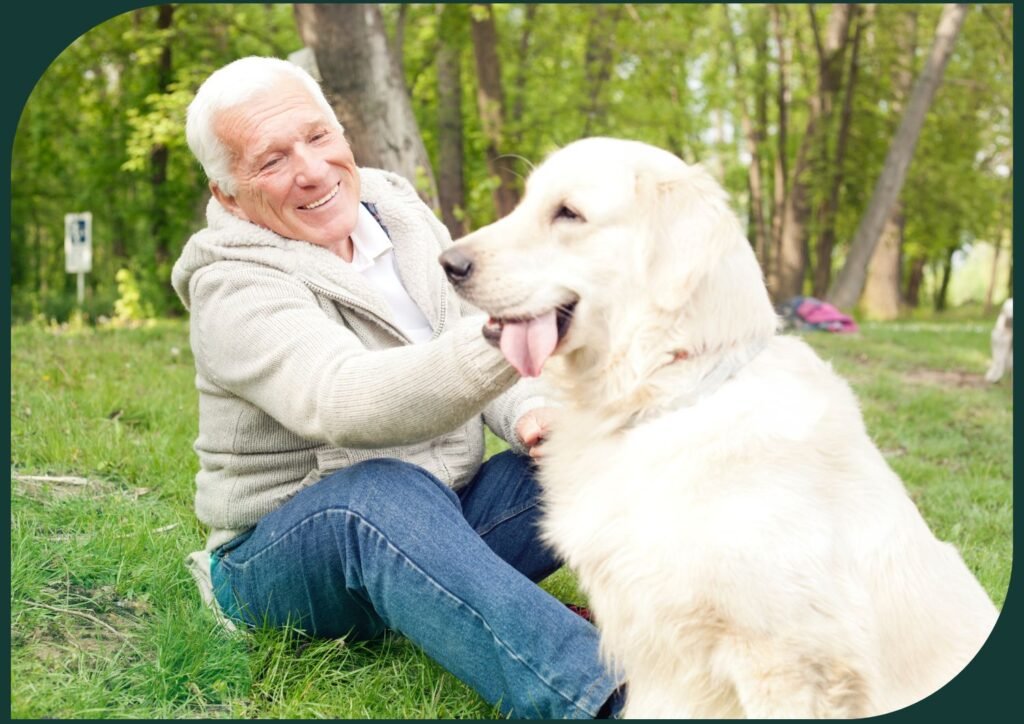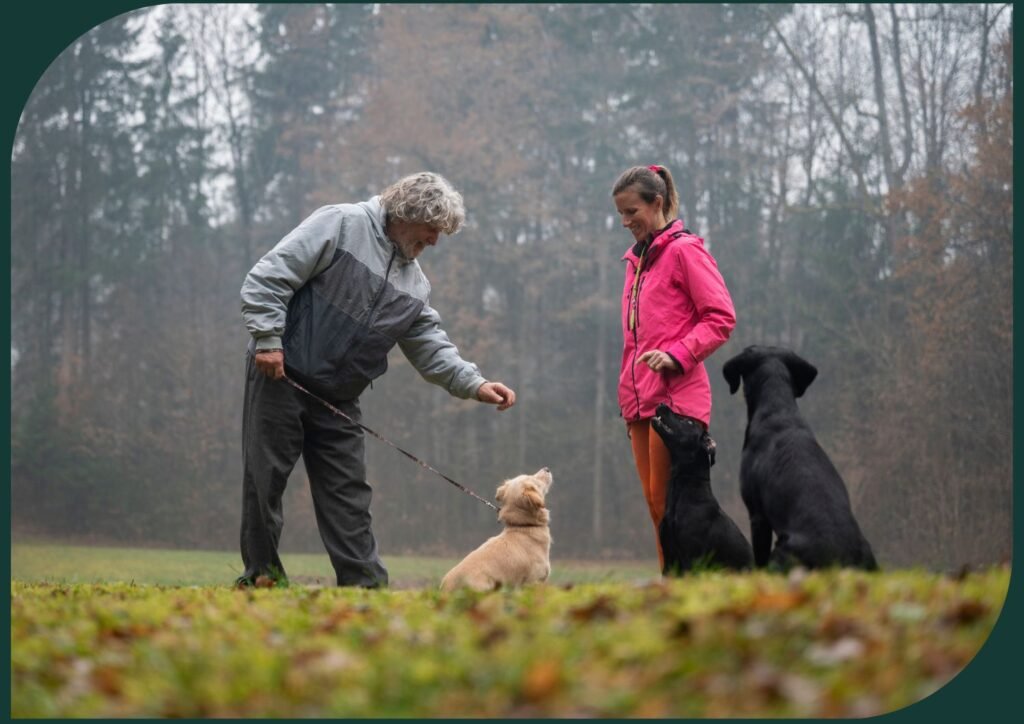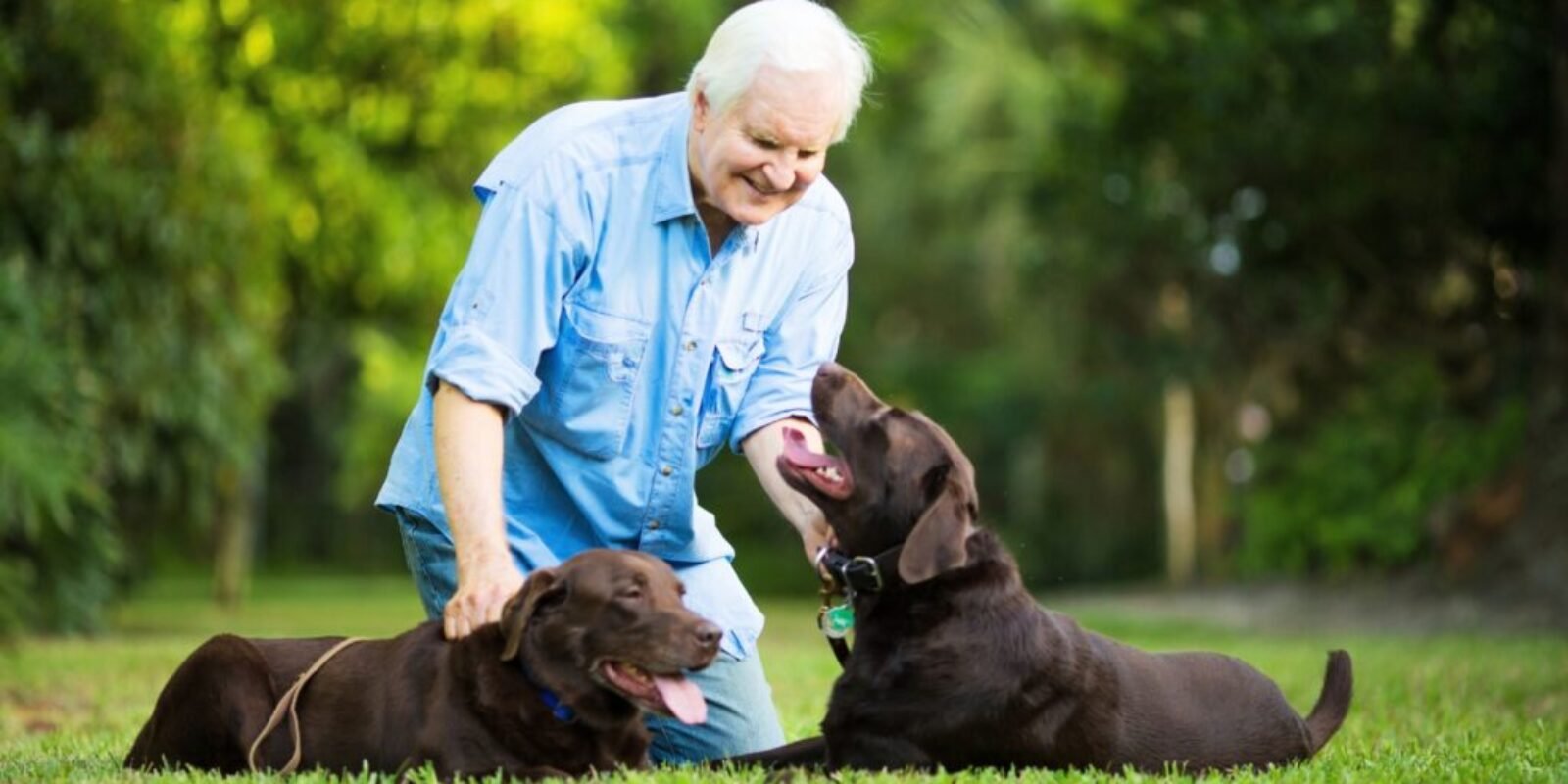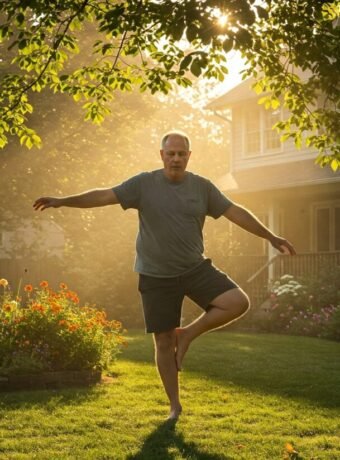Have you ever thought about how a senior pet could change your life? Picture this: a calm, loving companion who’s already past the puppy or kitten phase, ready to share your quiet afternoons and gentle walks.
As we age, the need for a steady, loving presence becomes more important. With their soothing demeanour and gentle nature, senior pets provide unconditional love and companionship. They’re content to simply be by your side, offering a furry shoulder to lean on.
Great Joyful Addition to Your Senior Years
As we journey through the different stages of life, our needs and desires evolve. For many, the senior years bring a longing for companionship that is constant, uncomplicated, and genuine. This is where senior pets come into play, offering a unique form of companionship that is especially beneficial for the well-being of older adults.

Senior pets offer something quite special: unconditional love and companionship. They don’t demand much – just a cozy spot to rest, regular meals, and the gentle touch of their human friends.
In return, they provide a level of companionship that’s both comforting and heartwarming. They seem to understand our need for a quiet presence, often sitting beside us in silent solidarity, offering a furry shoulder to lean on when we need it most.
As we face the challenges and changes that come with aging, such as retirement, the loss of loved ones, or changes in our health, these pets stand by us, unfazed by our slower pace of life. They don’t see our wrinkles or feel our aches; they simply see a beloved companion.
Senior pets exude a calming aura, marked by their soothing demeanour and gentle nature. They possess a certain serenity and wisdom that only comes with age, making them the perfect companions for those in their senior years.
Let’s delve into how these senior pets can make a significant, postive impact on the lives of their senior human counterparts.
Prefer to listen rather than read?

Senior Pets: The Ultimate Anxiety Busters You Never Knew You Needed
Have you ever noticed how your mood lifts when a playful puppy greets you, or how soothing it’s to stroke a cat’s fur? That’s not just the love you’re feeling; it’s science at work!
Life, as we know, can get pretty overwhelming. But here’s a fascinating fact: having a senior pet can genuinely make a difference. When seniors interact with their pets, something amazing happens inside our bodies. Their stress hormones, like cortisol, which can make them feel anxious or stressed, start to decrease.
At the same time, their bodies release a special hormone called oxytocin – often known as the ‘feel-good hormone.’ Oxytocin is like nature’s built-in stress reliever and mood lifter. This hormonal change can help them feel more relaxed and may even lower their blood pressure. It’s like having a natural wellness booster right in our homes!
But it’s not just about what’s happening inside them. It’s also about the joy and comfort senior pets bring into their lives. Whether you’re cuddling with a cozy cat, having fun playing fetch with an energetic dog or even watching fish glide peacefully in an aquarium.
These simple acts of spending time with pets provide a break from the hustle and bustle of daily life. They offer unconditional love and a kind of companionship that’s pure and heartwarming. Pets don’t judge; they’re just there for you, offering a sense of calm and comfort that’s hard to find elsewhere.
So, if you’re feeling the weight of the world on your shoulders, perhaps it’s time to consider the companionship of a pet. Whether it’s adopting a furry friend from a shelter or simply spending more time with the pets you already have, embracing the loving presence of an animal can be a step towards a more peaceful, joyful life.
Remember, in the journey of life, sometimes the best companions come on four legs, with wagging tails or purring contentedly. Let them be your stress busters and emotional supporters. Trust me, it’s a decision you’re unlikely to regret.

Fit and Happy: The Physical Fitness Perks of Owning Senior Pets
Did you know that your furry friend at home could be your secret to staying fit and healthy? Yes, I’m talking about your dog! These four-legged companions as senior pets are not just cute and cuddly; they are like personal trainers, encouraging us to move more.
Imagine a life where your daily routine includes not just work, chores, or screen time, but also joyous, energetic walks or runs with a loyal companion. That’s the life a dog can offer you!
Taking your dog out for a walk or a run is more than just a routine; it’s a fun and effective way to inject some much-needed physical activity into your daily life. While your dog gets to explore and enjoy the outdoors, you benefit too. Think of it as a win-win situation!
Now, let’s talk about why this is so good for you. Regular walks or runs with your dog help maintain a healthy weight as a senior. Why is this important? Well, keeping your weight in check is one of the keys to avoid a lot of health problems later in life.
But it’s not just about weight. These regular walks or runs improve your cardiovascular health. Think about it like this: every time you’re out there with your dog, you’re boosting your heart health, kind of like giving your heart a mini workout.

And let’s not forget the overall fitness levels. Walking or running with your dog keeps your muscles engaged, your body more agile, and your fitness on an upward curve. This means you can do more activities without feeling tired quickly.
If you have a dog, embrace this opportunity for a healthier lifestyle. Start with regular, enjoyable walks or runs. If you don’t have a pet yet, maybe it’s time to consider bringing a dog into your life, not just for companionship but also for the mutual health benefits.
Senior Pets: Your Secret to More Meaningful Social Engagements
Have you ever noticed how a simple walk with your dog can turn into a social event? Or how a cat’s playful antics at a pet cafe draw smiles and conversations from strangers? This isn’t just a coincidence.
Pets are more than just furry friends; they’re social superstars, creating connections in ways we often don’t realize. They attract attention and curiosity, often leading to conversations with strangers. This isn’t just about small talk; it’s about creating connections that wouldn’t exist otherwise.

When you take your dog to a local park or participate in pet-related events, you’re stepping into a community of fellow pet lovers. These shared interests lay the foundation for meaningful interactions.
It’s easier to strike up a conversation when you have something in common, like the love for pets. Such interactions can evolve into friendships, providing a support network that’s both emotionally fulfilling and practical.
Now, let’s delve a bit deeper. Pets do more than just help us meet people; they can be a lifeline for those experiencing loneliness. This is particularly true for seniors living alone or those going through challenging times.
The companionship of a senior pet provides more than just company. It’s a source of unconditional love and non-judgmental support. Pets listen without interrupting, offer comfort without conditions, and are always there, bringing a sense of stability and routine to our lives.
If you have a pet, embrace these opportunities for social connection. Take your dog to the park, join a pet club, or participate in community pet events. These activities are not just good for your pet; they’re beneficial for your social and emotional health.

A Dog’s Life: Our Best and Oldest Friends
Of all the animals that people now keep as pets, researchers say dogs were probably the first to join our ancestors around their campfires around 15,000 to 30,000 years ago.
The dogs that senior pet owners keep as companions and helpers today descend from an extinct species of wolf. The species once hunted the vast landscape of mountain ranges and forests that stretched north to south from Northern Russia to Southern Pakistan; and east to west from the Kamchatka Peninsula to what are now Spain and Portugal.
While it is impossible to determine how early humans managed to domesticate a wild wolf species, most scientists believe the process happened over thousands of years. Scientists have found DNA evidence to suggest that the domestication process likely first began in Siberia.
Perhaps the wolves began by eating scraps and leftover food that accumulated around human settlements and hunting camps.
Many generations later, humans may have drawn the animals closer by feeding them. Still later, people may have welcomed the wolves into their homes.
Regardless of how humans first domesticated the modern dog’s wolf ancestor, scientists are certain that people began to breed the animals for selected traits. The dog breeds senior pet owners keep today are a product of this human-induced selective breeding.
For example, humans bred German shepherds for their ability to herd and protect livestock. They bred Labrador retrievers to collect game felled by hunters.
As implied by their name, people first bred bulldogs for bull-baiting, a brutal sport that involved siccing dogs upon tethered bulls. Bull-baiting aficionados needed dogs that were strong, tenacious, and muscular for this specific purpose.

Aging Dogs Behave Like Aging People
Exactly why people chose to dogs as their first pets is a matter of conjecture. But – apart from their useful hunting and protective instincts – the choice just might have to do with the fact that dogs share much more in common with humans than most other animals we now domesticate.
Dogs undergo stages in their life in ways that can be uncannily similar to the ways that people age. These similarities are so apparent, and so poignant, that poets from Homer to Pablo Neruda have written about them.
In fact, more and more dog-loving civic organizations see dogs as good models for human aging because they suffer from its pangs in many of the same ways that people do.
Like humans, dogs often experience a decline in energy levels as they age. They become less active than they were in their younger years.
Aging dogs and humans commonly experience joint stiffness, arthritis, and other mobility issues, too. This should be obvious to any senior pet owner who has watched a weary, white-bearded canine friend slowly rise to all fours for one more walk.
They may have difficulty climbing stairs or they may struggle to get up from lying down. In their old age, dogs also often demonstrate changes in sleeping habits and personality.
Old dogs, like older people, may become more irritable, anxious, or clingy, or they may show signs of cognitive decline such as confusion or disorientation. Research from Vienna also shows that dogs mellow as they age in the same way that most humans do.

Mature Personalities
Even more fascinating, the findings of the same study show that some dogs – like some people – are just “born old,” meaning they are markedly steady and mature even as pups: as though they were ready for a rocking chair, reading glasses, and perhaps a walking cane.
One of the authors of the Vienna study, Borbalu Turcsan of Eötvös Loránd University in Budapest, even noted that the personalities of the steady and mature dogs – just like those of their human counterparts – don’t change much over time.
“People with more mature personality profiles change less as they age,” says Turcsan. “And we found exactly the same in the case of dogs.”
These similarities re probably why most senior pet owners favor dogs over cats and birds. Data from the University of Michigan’s National Poll on Healthy Aging indicates that dogs are the most common pet among Americans aged 50 to 80.
The remainder of the senior pet owners who responded to the poll said they kept cats and small animals, such as birds and hamsters.
Who Rescued Who?
Humans are said to grow more easygoing and affable with age. While we are certain quite a few of us can think of a few exceptions in our own families, statistics seem to support this popular assumption.
To drive home this point, the researchers in Vienna compared an aging Labrador retriever to the actor, Tom Hanks. Why Labrador retrievers? Because those were the dogs available to the researchers who undertook the study.
Why Tom Hanks? Because – well – who does not like Tom Hanks? While senior pet owners might look sadly upon the signs of aging in a beloved dog, people are generally comforted by the sight of a beloved Tom Hanks aging alongside his fans.
In ‘mellowing’ together like Tom Hanks, the bond between senior pet owners and their canine companions can become as strong as the friendships that people form with each other.
Such was the subject of a viral video that melted countless hearts all over the world recently. The video – first posted on TikTok – features the bond between an 81-year-old man and his pet rescue dog, Ellie.
The clip captures the pair happily visiting garden centers and dining at tables together. The video’s creator mentions in the post that the senior pet owner and his canine companion even “look alike”.
“My dad and his rescue dog, Ellie, are inseparable,” the video’s creator wrote across the post. The video is humorously captioned: “Who rescued who?”
The Takeaway
The bond between humans and their pets is a unique and enriching one, providing emotional, physical, and social benefits. Think about how a senior pet could transform your daily routine.
The joy of waking up to a loyal companion, the comfort of their presence throughout the day, and the satisfaction of caring for another being – these experiences enrich life in profound ways. These pets don’t just fill your home; they fill your heart with love and purpose.
So, are you ready to welcome a new, loving member into your life? The decision to adopt a senior pet could be one of the best choices you make for your well-being. It’s not just about giving a home to an animal in need; it’s about enhancing your own quality of life with companionship, activity, and social interaction.
Reach out to a local shelter or a pet adoption agency today and take the first step towards a rewarding friendship that will bring joy to both you and your new senior pet.
Frequently Asked Questions
- How can I find a senior pet to adopt?
- Many animal shelters and rescue organizations have senior pets looking for homes.
- You can also search online pet adoption sites specifically for senior animals.
- Can these pets adjust to a new home?
- Absolutely! These pets are often remarkably adaptable.
- They can quickly become comfortable in a new home and form strong bonds with their new owners.
- Their past experiences usually make them more relaxed and accepting of new environments and routines.
- What should I consider before adopting a senior pet?
- Consider your lifestyle and physical capabilities to ensure a good match.
- Think about the pet’s health needs, temperament, and the level of care it requires.
- Also, consider the financial aspect of pet care, including potential veterinary expenses.
Disclaimer
The content provided on MySeniors.World is for informational purposes only and is not intended as either financial or medical advice. Always consult a qualified professional before making any investment or health-related decisions.
Posts may contain affiliate links, meaning we earn a commission – at no additional cost to you, if you click through and make a purchase. Your support helps us continue providing valuable content.



















